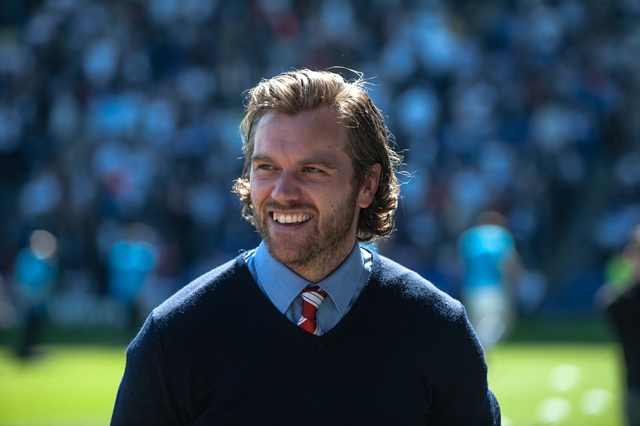While the seniors are still going strong across the pyramid – and there are some serious wise old bucks showing us how the job should be done – the list of young gaffers gets more impressive every year.
People often wonder why they start so young. Take Ebbsfleet's Daryl McMahon. Here was a player who was probably not far past his prime (I never saw Daryl play, but after hearing various reports I wish I had). At 32, he was
challenging for promotion from Conference South with Boreham Wood, but when the opportunity came up to move into management he knew he had to take it. A club with Ebbsfleet's pedigree may not come knocking again.
You think of Ebbsfleet now and you immediately think of Daryl. He has moulded the club and the team around his way of thinking. Perhaps there is something to be said for the fact he sees the play with a fresh pair of eyes, in the sense he's almost on the pitch with the players. His connection from a playing career that has only recently finished and a management career in its embryonic stages is clearly evident. It's a cliché, but he's the ultimate 12th man, able to read a pass and identify a weakness in the opposition, whether it's collective or individual.
Maybe his younger years help him when he scouts a player; he knows exactly what he is looking for not just in terms of talent, but in personnel. He can relate to a young player's mind and travails they are faced with in life. I'm not saying an older manager can't, but I am suggesting the relevant closeness in terms of age and outlook gives him an advantage.
It's a similar story with Billericay's Harry Wheeler, who I spoke to at length about his season at our recent National Game Awards. He may have had the resources and an inflated budget with Glenn Tamplin on the scene, but at 29 – yes, 29 – he was able to manage the egos and pull them together when they veered off track. I don't believe they would have got promoted without his stability and calm decision-making towards the end of the season with matters unfolding drastically at one stage.
Non-League has become a wonderful breeding ground for young, aspiring managers. McMahon himself has been courting interest in the Football League, while the word on the rumour mill is that Macclesfield – fresh
out of the National League themselves – had identified the maturing Jay Saunders as a possible replacement for the now departed John Askey. Meanwhile, Luke Garrard's stock, at 32 and despite losing out in the Play-off final, has never been higher. Stop and think about this for a minute, but he was one game away from taking Wood into the EFL.
Non-League's young managers are aspirational with a very clear path of where they want to go and how they want to get there. And, above all, they know the style of football they want to play and how to get their players to buy into it.
Brian Clough, arguably the greatest gaffer to have never managed England, had the same focus when he took over Hartlepool in 1965 at the age of 30 – all be it after being forced to retire following a neck injury while playing for Sunderland. When you think of Clough, you are often drawn to memories of the later years when his
reputation bore that of an ill-tempered old man who was carrying a severe drink problem, but he had the sharpest of minds; a footballing philosophy he developed in his earliest days at Victoria Park .
Football doesn't want to lose its playing assets but the lower leagues can be rightly proud of the talent they are producing in the dugout. They are creating their own path, and if that path takes them into the Football league and beyond, then Non-League football is doing its bit for the managerial circle of life.


















